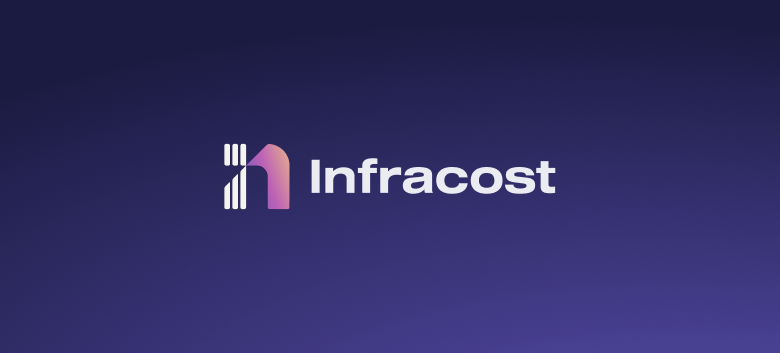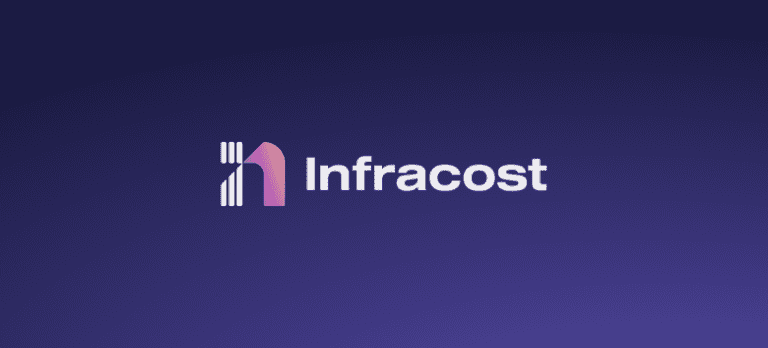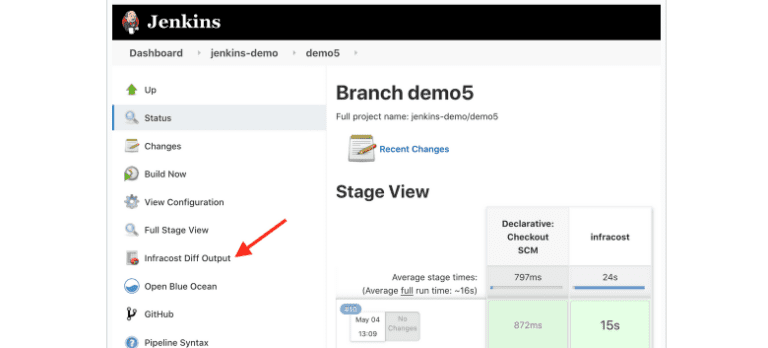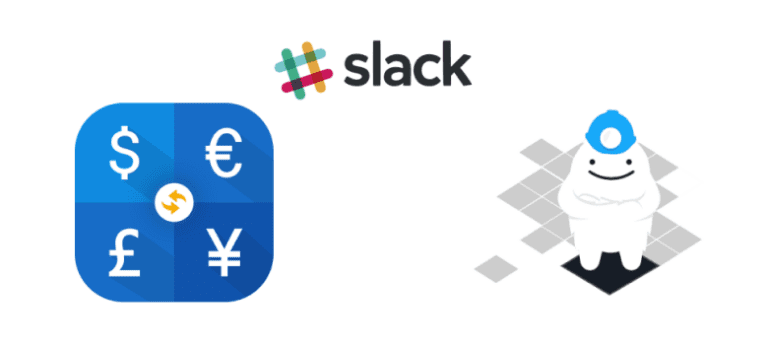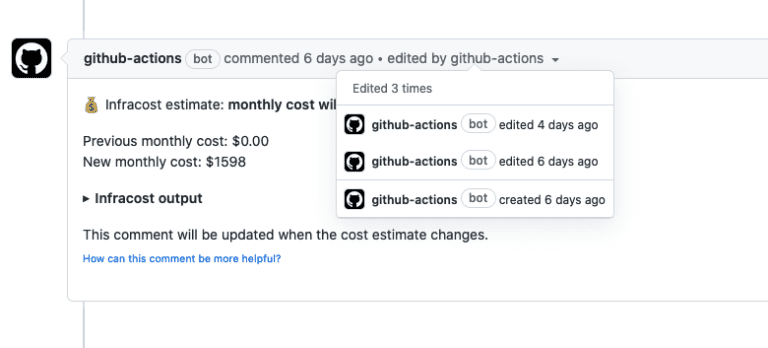June Updates: Enterprise Reports, Sync Repos and FinOpsX
Happy June!
It’s time for another Infracost update, but before that, we’ve got some exciting news: we’ve got a booth at the FinOpsX conference in San Diego next week. My co-founder (and brother!), Hassan, posted some great pics from last year’s conference, let us know if you/your team is going to be there 🥳

Enterprise Data Export
Large enterprises often have thousands of code repos across many departments, divisions, or business units. FinOps teams are usually centralized and need visibility across the enterprise so they can better prioritize their efforts. We released a new enterprise data export feature to provide this visibility. Using this data, FinOps teams can, for example, see that department A is doing well when it comes to the latest generation instance types being used but needs help improving their tagging coverage or that department B has few data retention policies, so specific training might be needed.
The enterprise data export is consistent with daily CSV files exported to AWS S3 or Azure Blob Storage. They contain a summary of all tagging and FinOps policy issues across all code repos, the number of issues that were prevented or fixed, and the total amount of cost prevention or reduction from your policies.
Repo Sync
When we speak to FinOps teams at large enterprises, they don’t know which of their thousands of code repositories launch infrastructure (IaC), and therefore, should have FinOps and tagging policies applied to them. It is also difficult to keep up with all of the new applications or services being launched and ensure that they follow policies from day one. Furthermore, repos are regularly renamed or moved due to re-orgs, and deleted or archived due to applications being decommissioned.
The Infracost GitHub and GitLab Apps now enable you to automatically add all current and future Terraform repos to Infracost, ensuring costs are estimated, FinOps policies and tags are checked as soon as IaC is present 🚀
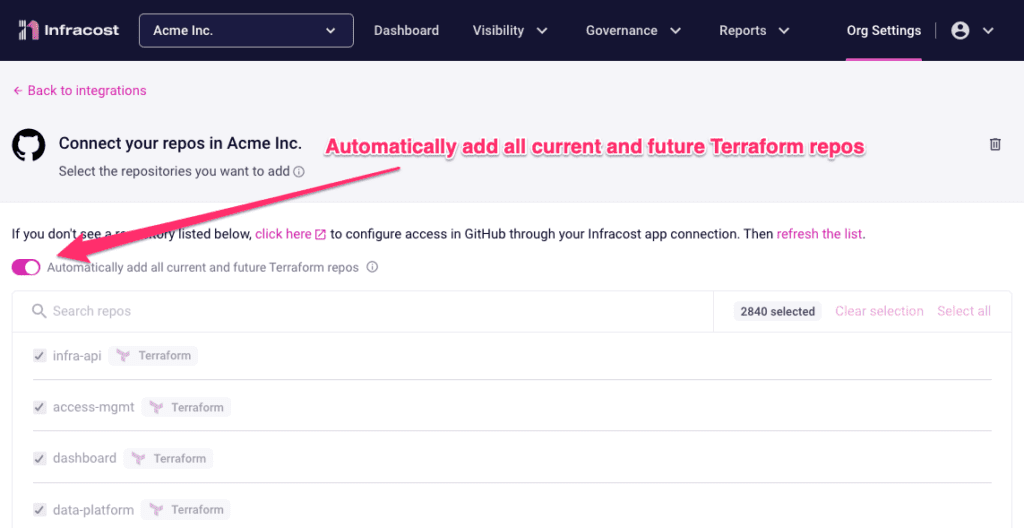
Furthermore, our GitHub and GitLab App now automatically reflect the following changes in Infracost:
- Repos that are renamed are automatically updated in Infracost.
- When a repo is moved from one GitHub/GitLab Org to another, that change is reflected in Infracost. When the source and destination GitHub/GitLab Orgs are in different Infracost Orgs, the move is also performed as long as the Infracost Cloud orgs are in the same Enterprise.
- Repos that are deleted or archived are marked as archived in Infracost and preserved for audit purposes. Their issues no longer show in the dashboard.
New Azure Policies
We’ve added three new FinOps policies per the Azure Well-Architected Framework. This enables engineers to keep focused on delivery, leaving Infracost to check and warn them when a better option exists.
- Firewall—Consider downgrading to Standard or Basic: Azure Firewall Premium offers additional features such as TLS Inspection, Intruder Detection, URL Filtering, and Web Categories. If these features are not required, consider downgrading to Standard or Basic to save 27-67%.
- Virtual Machines—Consider upgrading Da (AMD x64) series machines to Dav5: Upgrade to Dav5, Dasv5, or Dadsv5 series machines to get better price performance using a newer processor (around 10% savings for some instance types).
- Storage Accounts—Consider upgrading your account kind to StorageV2: Azure recommends general-purpose v2 accounts for most storage scenarios. These offer the lowest per-gigabyte capacity prices and reserved instances for further discounts.
Visit the Infracost Cloud > Governance > FinOps policies page to see if your repos are having the above issues.

